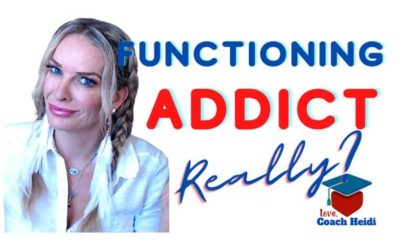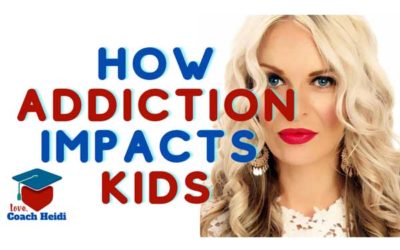Let’s talk about the Attachment Personality of the Victim.
Firstly, what is an attachment personality pattern? When you’re born into a family Dynamic particularly one that is dysfunctional. toxic, abusive, or addicted, you start scrambling and hustling to try to figure out how to do life in that family. You try to figure out how to survive, thrive, connect or cope in that family of origin and you take on a personality in order to function in the dysfunction.
I call those ways of being and behaving Attachment Personality Patterns and they are types of codependency.
As a codependency coach, it’s my hope to help do a couple of things. The first thing I want to do is foster awareness of any subconscious patterns that you might be living out within your current relationships that you once adopted as a way to function.
But now it’s not working anymore.
And then I want to give you the tools and strategies to break free from those patterns once and for all.
Because patterns aren’t pathology, you’re not sick and there’s nothing wrong with you. But there’s a way that you’re behaving and showing up in your relationships today that just isn’t working for you anymore. It’s holding you back from having the relationships that you really deserve and that you really want.
Now here’s what’s ironic about the role of the victim ( the role we’re discussing today) in this dysfunctional family dynamic. Likely victims aren’t the ones reading this! In fact the only time a victim personality will ever search out a video on YouTube about being a victim is to prove people wrong that they’re not actually a victim.
So if the victim personality isn’t reading this, who is? It’s likely the role of the Fixer attachment personality pattern who’s looking to properly diagnose the victim in the dynamic and figure out how to fix that person or help that person best.
I also work with a lot of therapists and I certify coaches, who are likely trying to figure out how to better work with this personality.
Before I dive into the 5 core traits of a victim personality, let me just give you a caveat. This role is particularly hard to help and in many ways and because there is a refusal to recognize that the person is actually in the victim role.
The role of the victim in this functional family Dynamic it is usually played by the toxic or dysfunctional person in the household. If they are actively alcoholic, addicted, narcissistic or toxic, their level of insight is slim to none as far as the impact that they’re having on other people goes.
That said, let’s get into these five core traits first and then we can talk a little bit more about what’s the path out of this.
Core Trait #1. Victim personalities have a tendency to ruminate on past disappointments and perceived wrong doings. Now I just want to give a caveat to say this sometimes there’s the difference between being a true victim and playing the role of the victim in the family becomes more clear.
Please know. I’m not really talking about a true victim here, where one was victimized. Often the role of the victim is the one victimizing others but refuses to acknowledge it.
The one’s being victimized by the Role of the Victims behavior don’t often claim the role of the victim. They see themselves more as survivors and are often unwilling to admit or have trouble recognizing the true impact of the dysfunctional/toxic person on their life.
The role of the victim constantly perceives wrongdoing by others when in fact none may be present. It is in fact the role of the victim perpetuating the wrongdoing and projecting it onto others.
Even though a significant amount of time or opportunity has gone by to heal or deal with the disappointments, Victims tend to get lost in their feelings and ruminate.
You may notice as a coach or therapist, that when you’re trying to help a victim they’re committed to their sadness. They’re committed to their disappointment. They’re committed to ruminating in those feelings and all the attempts to pull them out of that are really futile because again, their level of commitment to that disappointment is so intense.
Core trait #2. Victim personalities have a deep sense of being different or misunderstood, coupled with a hopelessness of ever being understood, accepted, or known.
Victims feel like nobody gets them, understands them, or truly cares to figure them out. Though we can all feel different and misunderstood, it’s the Victim’s attachment to the belief that no one ever will that separates them from ordinary feelings of disconnection.
Core trait #3. Victim personalities have a tendency to blame other people. Victims use blame as their primary strategy to make sense of all of their failures or unfulfilled potential. They believe other people, places or things have been solely responsible for their lack of success. They blame lack of opportunity, even when shown opportunity existed. They will commit to their belief they are free from any personal responsibility.
If you’re working as a coach or a therapist with the victim personality, it can be extremely frustrating because as soon as you build enough of a relationship with your client to gently move them in the direction of assuming accountability, they will often be greatly offended at the notion and may even stop showing up in session in protest.
Core trait #4. Victim Personalities have a deep-seated rescue fantasy and look to others to provide a sense of security and safety while simultaneously holding the belief it is impossible to be rescued. So while they believe that nobody really gets them, understands them and nobody ever will, they have this fantasy they play over and over again in their mind that someday the right person will come along and save them.
And because feeling safe and secure is an inside job and people are fallible, the Victim Personality never feels secure, but blames the other for feeling that way.
This is like a prison for the Victim personality. They want to be understood and rescued, but do not believe it exists.
Core trait #5. Victim personalities demonstrate a level of treatment resistance by refusing to use the tools given to move out of the role.
If you’re a coach, clinician or even a Fiver Attachment Personality Pattern, here’s what you need to know: Victims will not use the tools to get better. It can be maddening. You may pour effort into helping by providing concrete strategies to help your client shift their perspective and you will be met with an excuse as to why that particular technique won’t work for them.
They’ll often use the defense of being misunderstood or not “gotten” as to why that particular strategy won’t work for them. Feeling different prevents them from believing that particular strategy will help them.
If they do use a technique, they will be inconsistent. If you asked them why they stopped, they’ll tell you it didn’t work for them. But when you point out the inconsistency as a possible reason for failure, the Victim personality will become argumentative, feel confronted and claim you are not getting it.
All of this seems bleak, I know, as far as being able to help this personality make a shift.
But the say out is clear. The only way a victim becomes healthier is through awareness (they are in the role), accountability and personal responsibility (seeking treatment) and consistent action (working a recovery program).
You cannot “get through” to a Victim Attachment Personality Pattern
And all of your attempts to help them “see the light” are futile unless they are taking the initiative to actively seek their own recovery.
Often, once in a treatment program they can see their victim mentality and make progress. But this takes time and all of the breaking though is done by the victim’s hard work and dedication to getting healthy.
So how can you help? Encourage the Victim Personality to get into recovery. If they are actively using drugs or drinking, recommend they get into treatment. I have several videos on my YouTube Channel to help with this.
If you want to discuss how to heal from your own involvement with a Victim Personality, please reach out at www.LoveCoachHeidi.Com and schedule a complimentary consultation.




0 Comments